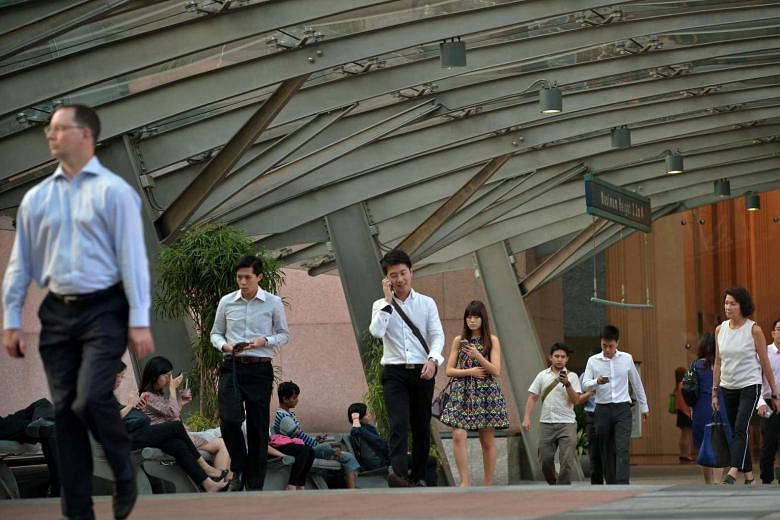SINGAPORE - Millennials in Singapore say their employers can do more to attract, promote and retain talent in an organisation, a new study has found, as the young adults grow more demanding in career expectations and aspirations.
Perception scores among millennials - a demography of people born between years 1979 and 2000 - fell by 5 points in the area of talent and staffing, as well as the employers ability to allocate appropriate and adequate resources to get the job done, said the study conducted by Aon Hewitt - a global talent, retirement, and health solutions business.
The 2016 Trends in Global Employee Engagement study also found that perception scores for the same demographic fell by 5 points in terms of diversity and inclusion, and by 3 points in autonomy as well as work-life balance.
The findings reflect the need for Singapore employers to take urgent action to engage with this significant proportion of the workforce.
There are 1.2 million millennials in Singapore today, which constitute 22 per cent of resident population. They are also the largest generation in the Singapore workforce.
Data for the study was collected from more than three million employee responses in 2014 and more than four million responses in 2015. Employer organisations ranged from those with fewer than 100 employees to the most complex with hundreds of thousands of employees, across more than 60 industries.
"Engagement gets affected due to an employee's lack of visibility on his career path in the organisation. This is why it's not enough to just have performance conversations once a year,"said Gitansh Malik, Regional Leader of Aon Best Employers Asia Programme.
The study found that employees in Singapore are less engaged this year than their Asia Pacific counterparts. News gets better in the rest of Asia, where employee engagement has risen over the last year by 8 points in China, 5 points in India, and a whopping 13 points in the Philippines.
"More and more companies in Asia are focusing on the overall employee experience, rather than just pay and benefits," says Stephen Hickey, Aon Hewitt's partner and executive sponsor of Employee Engagement Practice in Asia Pacific, Middle East & Africa. "This is reflected in the continuous investments and improvements in HR practices that lead to a more positive and productive work experience."
The study suggested that for organisations to succeed in a time of volatility, executives and managers must optimise the employee experience.
"Managers must communicate a vision around how team members can transform their careers and grow in the organisation," Mr Malik said.
Aon Hewitt study called for "continuous listening" by gathering feedback and taking action across the entire employee life cycle, from pre-recruitment to exit.
Organisations should solicit feedback from candidates about the recruitment process regardless of whether or not the candidate gets a job offer, replace annual engagement surveys with quarterly or monthly pulse surveys and conduct exit interviews to understand why an employee is leaving, the study said.
Leaders must listen to what employees are saying about the organisation and act on the messages by having clarification conversations with employees, and making improvements based on appropriate feedback.


